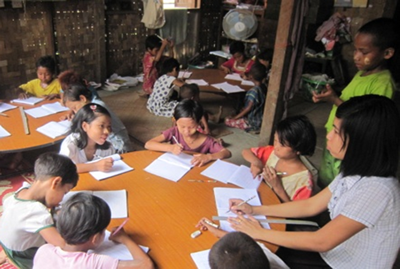
OVERVIEW
The United States recognizes the ongoing reform efforts to build a modern, peaceful, and democratic country and welcomes the opportunity to deepen engagement with the people of Burma and their government.
In light of the transition underway in Burma, USAID sees a need and an opportunity to engage directly with Burmese organizations and institutions to support political reforms, foster ethnic reconciliation, and strengthen the capacity of reform-minded individuals and institutions. USAID supports inclusive and transparent peace processes that increase access to populations in need and lay the foundation for political resolution to long-standing conflicts and a durable peace. USAID also is committed to enabling recovery from disaster and reducing vulnerability to future hazards.
USAID builds on a long legacy of assistance to the people of Burma and will focus on new and expanded collaboration in the following priority areas.
- Peace and Reconciliation: Supporting peace processes to ensure an equitable and inclusive approach that respects the human rights of all involved, providing humanitarian assistance to conflict-affected and vulnerable populations in border areas and inside the country, and working to address the root causes of long-running conflicts and ethnic tensions.
- Humanitarian Assistance: USAID will help the Government of Burma bolster the coordination of emergency assistance to reach all parties in need. USAID will build awareness and resilience to disasters, and build the capacity of the Government of Burma to assess hazard risks and prioritize needs.
PROGRAMS
PEACE
Peace Processes: USAID will promote political dialogue, awareness, and peace building and provide technical support on conflict mitigation and peace processes in Burma. USAID will strengthen the capacity of key leaders and local organizations to implement negotiated agreements. USAID will support a constituency for peace by building economic relationships between ethnic and religious groups and between communities and newly formed government structures, and will work specifically to increase women’s access and ability to engage with and lead peace-building processes in Burma.
Vulnerable Populations: USAID will enable greater inclusion of people with disabilities in development efforts and disabled people’s organizations (DPO) in policy making and policy review, and strengthen the capacity of DPOs. USAID will increase access to and availability of services for landmine survivors and other people with disabilities in Burma and assist with the mental health of populations in border areas.
HUMANITARIAN ASSISTANCE
Emergency Response: USAID will help the Government of Burma bolster the coordination of emergency assistance to reach all parties in need during a conflict or natural disaster, and the provision of nutrition, food, water, sanitation, and hygiene assistance for displaced and vulnerable populations in conflict-affected areas nationwide.
Disaster Risk Reduction: USAID will help improve civil society groups’ understanding of disaster management and humanitarian best practices, build community awareness and resilience to disasters, and build the capacity of the Government of Burma to assess hazard risks and prioritize needs.
FACT SHEETS
Peace and Reconciliation Fact Sheet (PDF, 200kb)
Complex Emergency Fact Sheet, December 29, 2015 (PDF, 234kb)








Comment
Make a general inquiry or suggest an improvement.